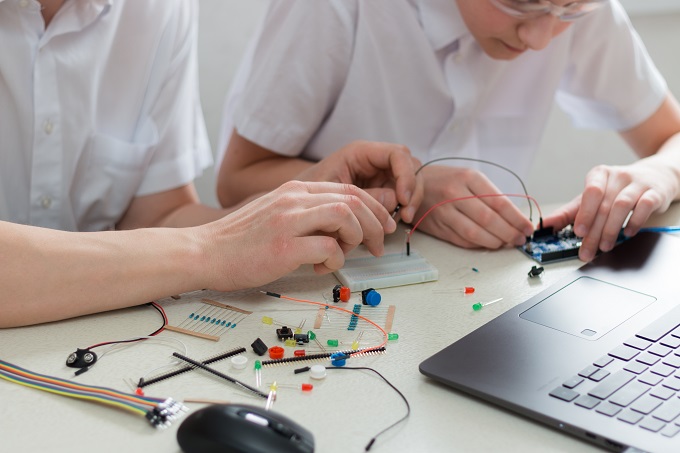
© AlesiaKan - stock.adobe.com
The expansion will be rolled out over four years and cost $7.2 million. According to the Ministry of Education, the Developing Mathematical Inquiry Communities or ‘DMIC’ programme aims to “boost Pacific students’ maths outcomes by supporting schools to leverage their learners’ Pacific knowledge and culture”.
Associate Minister of Education Jenny Salesa said: “DMIC draws on students’ Pacific culture and heritage to support their success in maths. For example, students will use traditional Pacific crafts like tivaevae (Cook Islands quilt making) and ta’ovala (Tongan weaving) to engage better with complex mathematical thinking and algebraic patterns.”
“This funding will see teachers work differently with their students in mathematics, and support schools to build a stronger sense of belonging and identity for their Pacific students as mathematicians.”
“Teachers are taught how to listen – to hear the mathematics thinking that children are doing as learners work and explain their thinking. By doing this, teachers can identify the different types of mathematical thinking that learners are using and build on this to extend learning for all students in the class.”
“The future of learning is through project-based work and mixed-ability groups and DMIC encourages this. Children can benefit from moving from streaming, or same-ability grouping, to mixed-ability groups so that they are able to build on the multiple strengths and capabilities of every member of the group.”
“We’re investing in the roll out of the successful DMIC programme because we know our Pacific students have so much more to contribute through maths if teachers and students, alongside their families, are given the right support to make the connections between mathematics learning and Pacific cultures. We’re excited to be able to roll it out to more schools, more students and more families.”
“This funding will deliver training and wraparound support for teachers, children and school communities through workshops and in-class mentoring. Success in maths for Pacific learners in this way can lead to better learning outcomes and improved wellbeing at school.”
“Complex maths is embedded in Pacific cultures and expanding DMIC is about reclaiming our mathematics legacy to ensure our Pacific learners have thriving futures through maths.”
“New Zealand has the capacity to produce a new generation of Pacific mathematicians ready to go into our universities, businesses and research facilities; this is the next step to unlock that potential,” said Jenny Salesa.
The much-delayed English draft curriculum is now out for consultation, generating discussion from teachers.
Research from AUT demonstrates arts, culture and recreation have positive impacts on all aspects of…
How effective has the school phone ban been in achieving its aims? Researchers from the…
School camps and excursions deliver hands on learning experiences, helping to consolidate classroom learning.
Innovations in AV technologies present new opportunities to engage with students. We look at how…
A new report from the University of Auckland’s Our Voices Project asks young people what…
This website uses cookies.